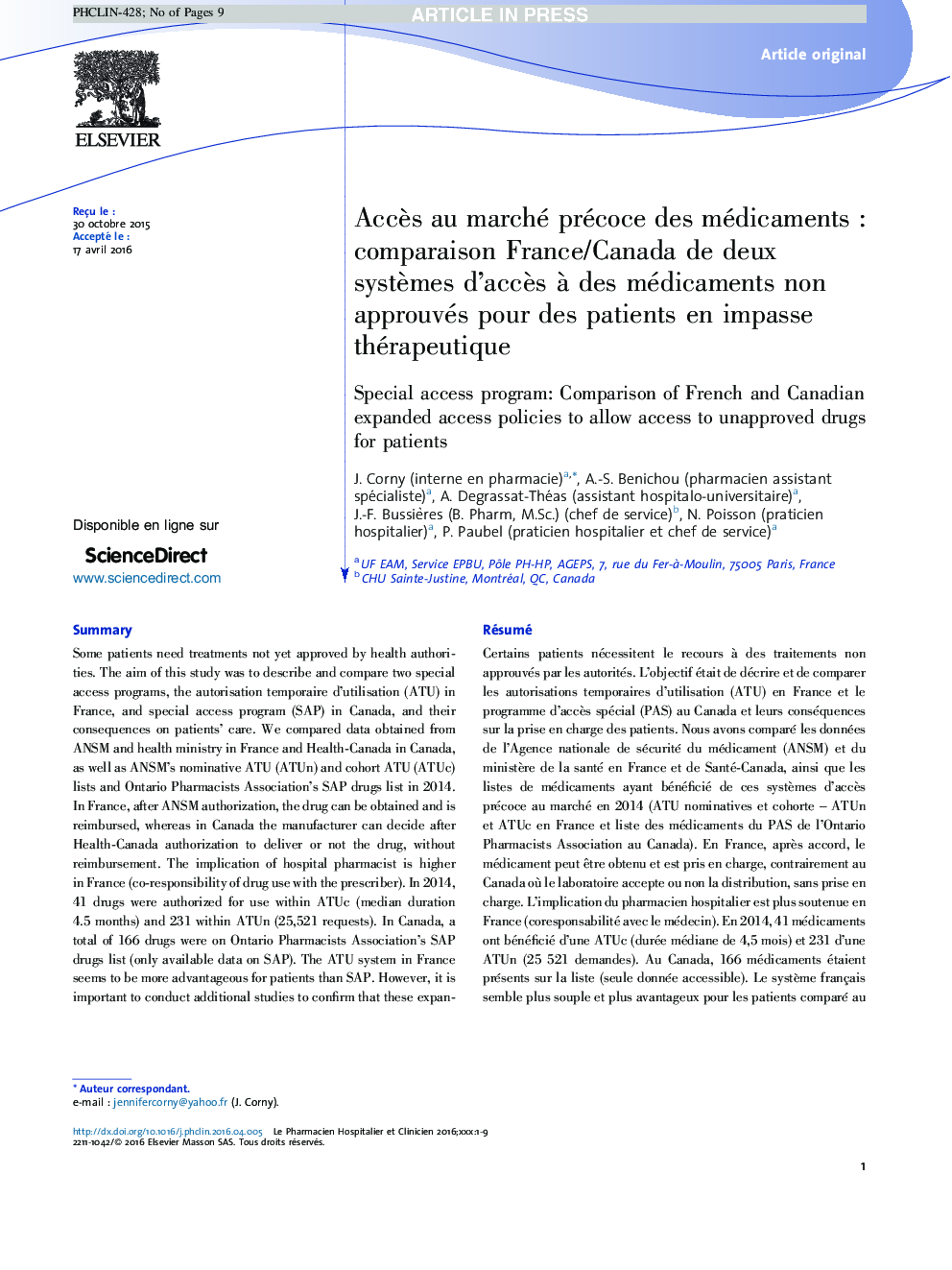| Article ID | Journal | Published Year | Pages | File Type |
|---|---|---|---|---|
| 5122530 | Le Pharmacien Hospitalier et Clinicien | 2016 | 9 Pages |
Abstract
Some patients need treatments not yet approved by health authorities. The aim of this study was to describe and compare two special access programs, the autorisation temporaire d'utilisation (ATU) in France, and special access program (SAP) in Canada, and their consequences on patients' care. We compared data obtained from ANSM and health ministry in France and Health-Canada in Canada, as well as ANSM's nominative ATU (ATUn) and cohort ATU (ATUc) lists and Ontario Pharmacists Association's SAP drugs list in 2014. In France, after ANSM authorization, the drug can be obtained and is reimbursed, whereas in Canada the manufacturer can decide after Health-Canada authorization to deliver or not the drug, without reimbursement. The implication of hospital pharmacist is higher in France (co-responsibility of drug use with the prescriber). In 2014, 41Â drugs were authorized for use within ATUc (median duration 4.5Â months) and 231Â within ATUn (25,521Â requests). In Canada, a total of 166Â drugs were on Ontario Pharmacists Association's SAP drugs list (only available data on SAP). The ATU system in France seems to be more advantageous for patients than SAP. However, it is important to conduct additional studies to confirm that these expanded accesses do not represent a way of bypassing health authorities' evaluations.
Related Topics
Health Sciences
Pharmacology, Toxicology and Pharmaceutical Science
Pharmacology, Toxicology and Pharmaceutics (General)
Authors
J. (interne en pharmacie), A.-S. (pharmacien assistant spécialiste), A. (assistant hospitalo-universitaire), J.-F. (chef de service), N. (praticien hospitalier), P. (praticien hospitalier et chef de service),
